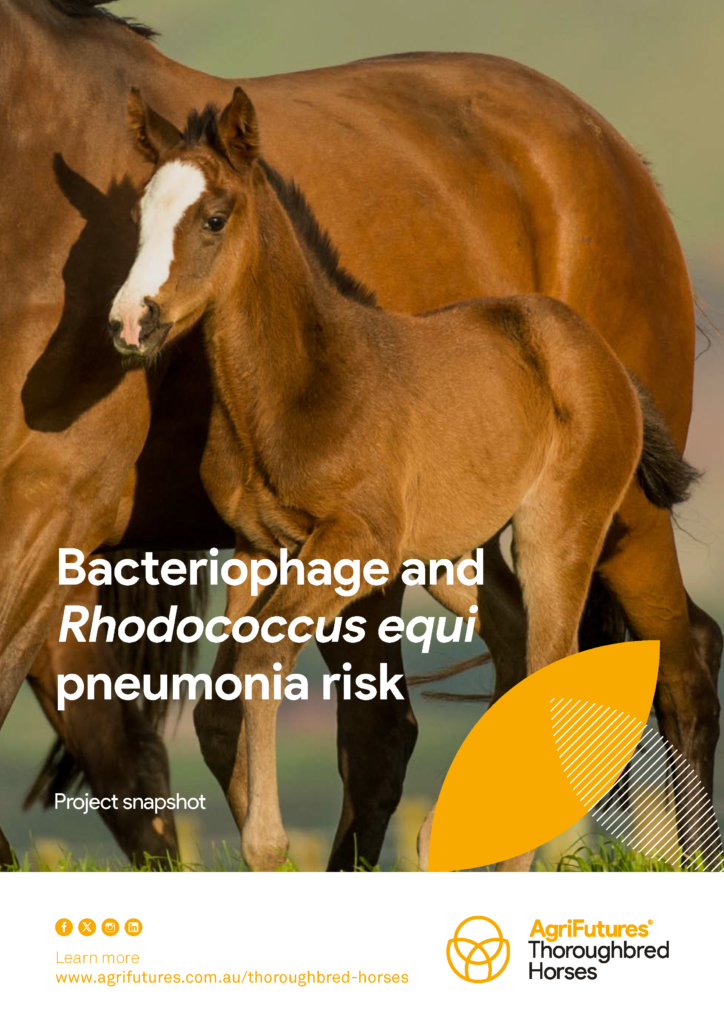Snapshot: Antimicrobial prescribing guidelines for horses
This document represents the first comprehensive resource providing detailed guidance on the management and treatment of common bacterial diseases in horses in Australia. Key highlights...
 THOROUGHBRED HORSES
THOROUGHBRED HORSES 
6 pages
Published: 5 Jun 2024
Author(s): Katharine Muscat, Grace O’Reilly, Carola Venturini, Carla Giles, Mary Barton, Gary Muscatello
Download report PDF
DownloadThe Australian thoroughbred breeding industry continues to grapple with managing risks related to Rhodococcus equi pneumonia, commonly known as ‘rattles’. The disease compromises foal health and imposes a substantial financial burden due to the high costs associated with its diagnosis and treatment. One possible mitigation option involves the use of bacteriophages (phages) – viruses that target specific bacteria and have potential to reduce environmental burdens of R. equi on farms.
This study detected and isolated R. equi phages from the environment on thoroughbred farms, specifically from soil and horse faeces. Although no links could be made with R. equi pneumonia risk, phages were associated with the faeces of foals two months of age or younger, especially those housed in small yards. Phages were readily identified in faecal and soil samples with detectable R. equi. These findings reflect the dependency of phages on their bacterial host.
Twelve phages were genetically sequenced and characterised, with six unique to this study. Phages with certain characteristics (greater tail fibres and lysins) infected a greater number of R. equi. Nine phages were capable of killing (lysing) bacteria and are considered suitable for phage therapy.
Phage-treated soil resulted in significant suppression of R. equi growth in laboratory-based studies. While field trials are needed to evaluate the effects of phage intervention on rattles disease risk, these results represent hope for a novel management tool that avoids the use of drugs and chemicals in the battle against rattles.